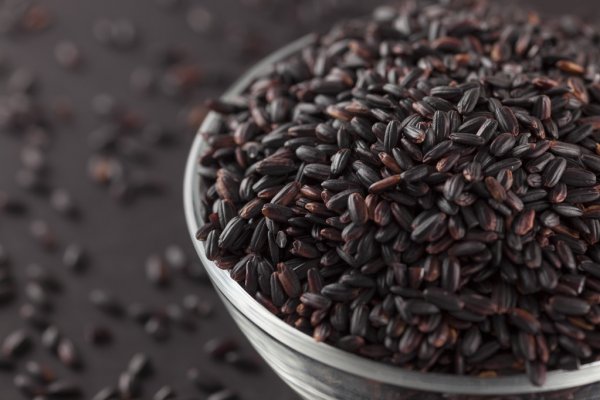
Black rice, also known as Forbidden Rice in ancient China, is an exotic variety of rice known for its many health benefits. In fact, in ancient China, only the emperor and the Nobel families were allowed to consume this rice.
Fast forward to the 21st century, a sudden surge in demand for black rice in the global market as people around the world are just beginning to recognize its several health benefits as well as its unique nutty flavor and chewy texture.
This fast-growing global market for black rice has changed the fates of several farmers around the world. But, in today’s article, we will be talking about how over the past few years, black rice has become a ray of hope for the farmers in the Goalpara District in Assam, India.
What Happened in Assam?

Back in 2011, a farmer named Upendra Rabha from Aamguripara village, Dudhnoi district of Assam, began cultivating black as an experiment with guidance from the local Krishi Vigyan Kendra (KVK). This collaborative experiment turned out to be a grand success in the very first year.
It encouraged the KVK to promote the cultivation of black rice amongst the local farmers. Today more than 200 farmers within the Dudhnoi district are cultivating black rice and making double the profits they used to make with conventional rice.
This dark purple looking odd duck rice fetches approximately rs.250 to rs.200 per kg in the international market if grown semi-organically and double that price if cultivated fully organic.
The Role of the Assam Government
After the KVK witnessed the success of black rice cultivation and started promoting its cultivation in villages of Assam, the state agricultural board also took notice of the success story and has worked towards the promotion of black rice cultivation in other parts of Assam as well.
Another initiative taken by the agricultural board in Assam is the promotion of the cultivation of completely organic black rice. According to their reports, most of the black rice cultivated here is semi-organic and, they fetch around 250 to 200 per kg whereas, completely organic black rice has the potential to grab almost double that price in the international market.
Read Also : 2020 is on course to be the warmest year on record,.https://greenstories.co.in/2020/
But Why So Expensive?

Closeup of mixed rice
After reading the above-mentioned exorbitant price, it is natural for one to wonder why it is so expensive. The reason behind this is the high nutritional values as well as the health benefits of it when compared to traditional rice. According to a study done by Louisiana State University, just one spoonful of black rice has more health-promoting antioxidants called anthocyanin than any other variety of rice. This particular antioxidant has shown promising results in fighting cancer and other heart diseases.
Some Other Health Benefits
Black rice also has the highest concentration of protein out of all the other varieties of rice (9grams per 100grams) and, it is also a good source of irony, crucial for blood circulation in our body.
The high concentration of protein and fibers aids weight loss as well as promotes muscle growth. Studies also show that black rice is rich in lutein and zeaxanthin. These are types of a vitamin called carotenoid and are for your eyes.
Other potential benefits of black rice include the reduction of blood sugar levels in those with type 2 diabetes and a decrease in the risk of non-alcoholic fatty liver disease (NAFLD).
In Conclusion
Black rice has turned out to be a very profitable crop in different parts of the world and helped farmers to earn better profits compared to other traditional varieties of rice. So, with proper guidance and support from central and state agricultural bodies, even the farmers of for country can reap the benefits of this wonder crop and establish our country as a major producer of black rice in the global market.
The need of the hour is to promote organic cultivation of black rice and increase the area under cultivation, and this needs to be done by providing proper training and education to our farmers as well as providing adequate financial aides to facilitate the cultivation of black rice.
Tags: #barley, #blackrice, #brownrice, #chickpea, #foodporn, #gardenpeas, #getgreen, #glutinouswheat, #gngagritech, #greenstories, #haruharu, #healthyfood, #quinoa, #redbean, #redrice, #rice, #rolledbarley, #skincare, #soybean, #wellnature, #wonderlab








Trackbacks/Pingbacks